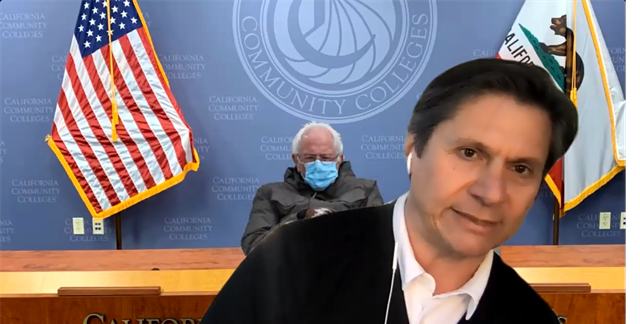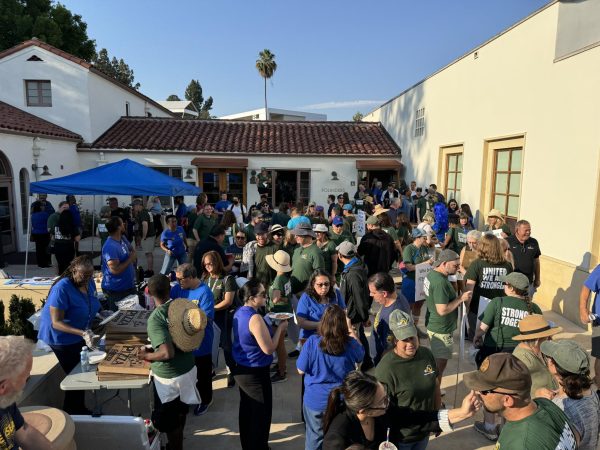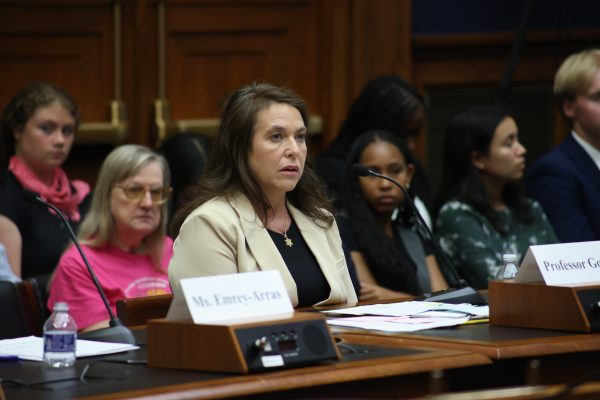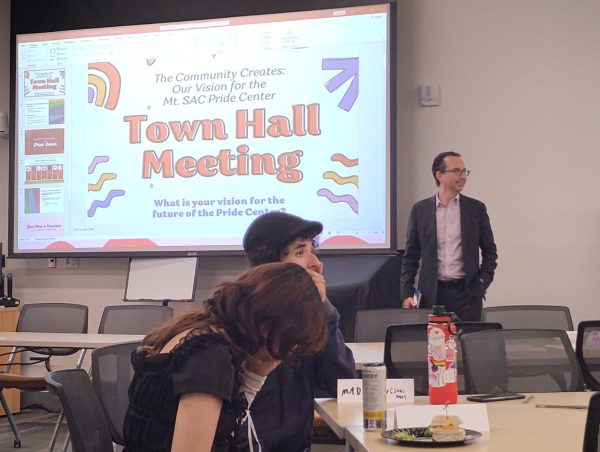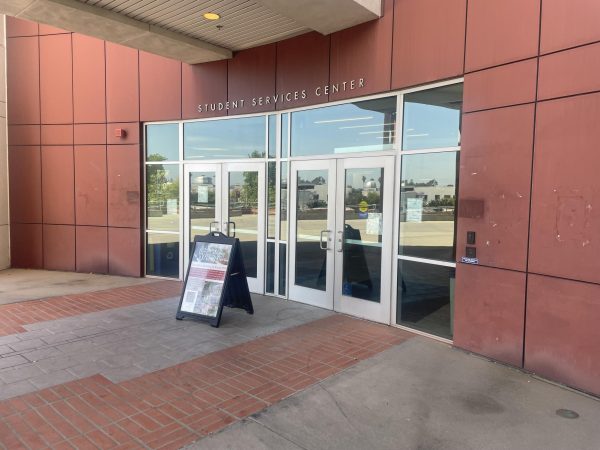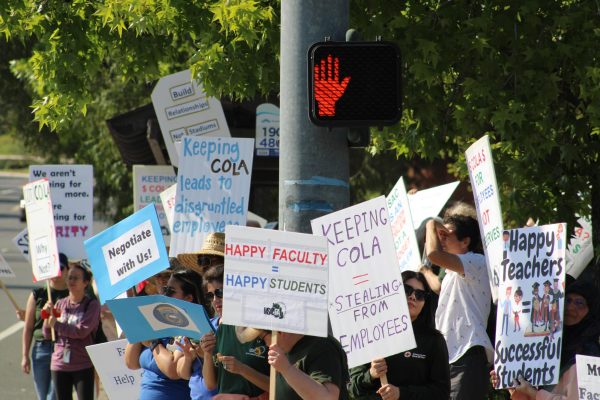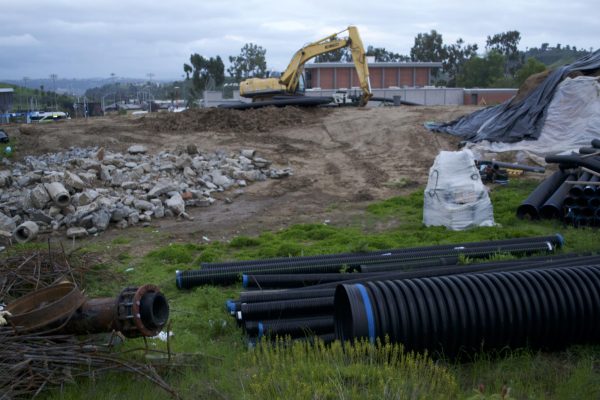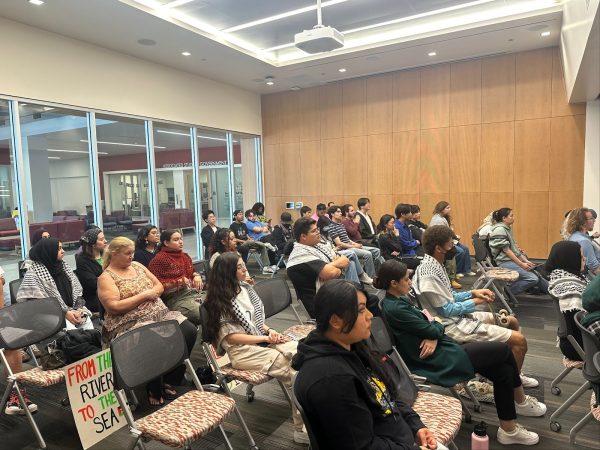Chancellor Urges Students to Fill Out FAFSA and CADAA
Money is left on the table each year in California, so fill out your FAFSA or CADAA.
Photo of Chancellor Eloy Ortiz Oakley with Bernie Sanders from his viral photo in the background from public teleconference on Jan 26.
California Community Colleges Chancellor Eloy Ortiz-Oakley held a teleconference on Tuesday to discuss financial assistance available for students impacted by the coronavirus.
The latest stimulus package from the federal government includes $290 million of direct emergency assistance to California community college students facing challenges due to the pandemic. Funds are being distributed to the colleges directly and are now available to students who qualify.
In addition to federal aid, Governor Newsom proposed a state budget that would include a one time investment of $250 million and emergency student financial aid grants. The governor’s proposal would include investments in mental health resources, student retention and re-enrollment for those who had dropped their courses during the pandemic, online education infrastructure, and the expansion of apprenticeship programs.
“We fully support this package, and we will be working with our legislators to get this passed into the governor’s desk so that we can get these resources out to our colleges,” Chancellor Oakley said.
Access to aid is contingent on filling out the Free Application for Federal Student Aid (FAFSA) and California Dream Act Application (CADAA). FAFSA is down for high school seniors by 12% compared to last year, and CADAA is down by 19% compared to last year for undocumented students. State aid is the only form of aid undocumented students are eligible to receive. Students must fill out either FAFSA or CADAA by March 2 to receive the most aid available.
Students can learn more about FAFSA and CADAA through webinars found at www.csac.ca.gov/cash-college.
Students can also find answers to frequently asked questions regarding FAFSA eligibility at www.icanaffordcollege.com/FAQ/Frequently-Asked-Questions
Additionally, Chancellor Oakley also discussed plans for reopening campuses now that the coronavirus vaccines are being rolled out. Despite classes continuing online, campuses are continuing to support students with services including technological support, tutoring, mental health services and food pantries.
“We are beginning to think about fall of 2021 or even the summer to see some possible in-person instruction begin to happen,” Chancellor Oakley said. He continued, “It will be the beginning of getting back to some sort of normalcy, but we will continue to have increased number of courses well beyond this pandemic.”
The decision for reopening is localized to each college working with their local and regional public health officials. So far, vaccine distribution is following state guidelines that will soon be moved to age-based guidelines.
Chancellor Oakley could not yet comment on campus regulations that may require students to have been vaccinated to attend in-person classes. Such regulations would be dependent on California getting access to the vaccine faster.
All community college campuses have been volunteered as vaccination sites, and 44 campuses have stepped up. Mt. SAC is assessing its possibility of becoming a vaccination site.
The next teleconference is expected to take place in the beginning of March.


